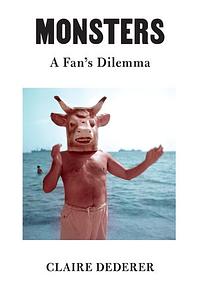Take a photo of a barcode or cover
challenging
reflective
slow-paced
3.5 but rounding down. I wanted more from this book, but maybe that was just me looking for a more concrete answer on the central questions: what do we do with the art of monstrous people? Can we separate art from artist? After listening to this book, I'm still not sure, and I know it's something I'll continue to grapple with for the rest of my life.
I appreciated Dederer's candor in exploring her own thoughts and feelings surrounding artists who've done bad things—and what, exactly, counts as a bad thing for men and how that can differ from the "worst" thing women can do. It was also really interesting to hear her puzzle through whether it's even possible to be an ethical consumer in a capitalist society. I'm not sure I quite agree with her conclusions regarding what change we are or are not capable of creating as individuals, but her argument was compelling nonetheless. I'd recommend the book for people who are struggling with these kinds of questions, but don't expect to come away with any clear way forward.
I appreciated Dederer's candor in exploring her own thoughts and feelings surrounding artists who've done bad things—and what, exactly, counts as a bad thing for men and how that can differ from the "worst" thing women can do. It was also really interesting to hear her puzzle through whether it's even possible to be an ethical consumer in a capitalist society. I'm not sure I quite agree with her conclusions regarding what change we are or are not capable of creating as individuals, but her argument was compelling nonetheless. I'd recommend the book for people who are struggling with these kinds of questions, but don't expect to come away with any clear way forward.
challenging
dark
emotional
informative
reflective
fast-paced
inspiring
reflective
fast-paced
I think the dust jacket does this book a disservice: it’s not so much seeking an answer to the question “can we love art by monstrous people?”—that answer emerges quickly; and I appreciate that the author didn’t do a tedious back and forth about it—but rather begins from the premise that we do love art made by bad people, and what does that mean for us, for our ideas of “genius”, “art”, “artist”, and more. Finally, a not-annoying engagement with and reading of Lolita. A great read, minus half a star because it felt at moments like the author was trying too hard to be funny/use colloquial speech when she clearly has brilliant insights that didn’t need to be tamped down by this weird casual comedian voice
informative
reflective
fast-paced
informative
reflective
slow-paced
challenging
dark
emotional
reflective
medium-paced
challenging
informative
reflective
medium-paced
challenging
reflective
medium-paced
hopeful
informative
reflective
sad
medium-paced
Bummer to find out Bowie’s on the list.
First half feels like a completely different book than the second half. But both have interesting points, I just wish it was cohesive and made a clearer argument. But what do I know?
First half feels like a completely different book than the second half. But both have interesting points, I just wish it was cohesive and made a clearer argument. But what do I know?
challenging
dark
informative
reflective
A brilliant collection of essays that consider the problem of art and love.


